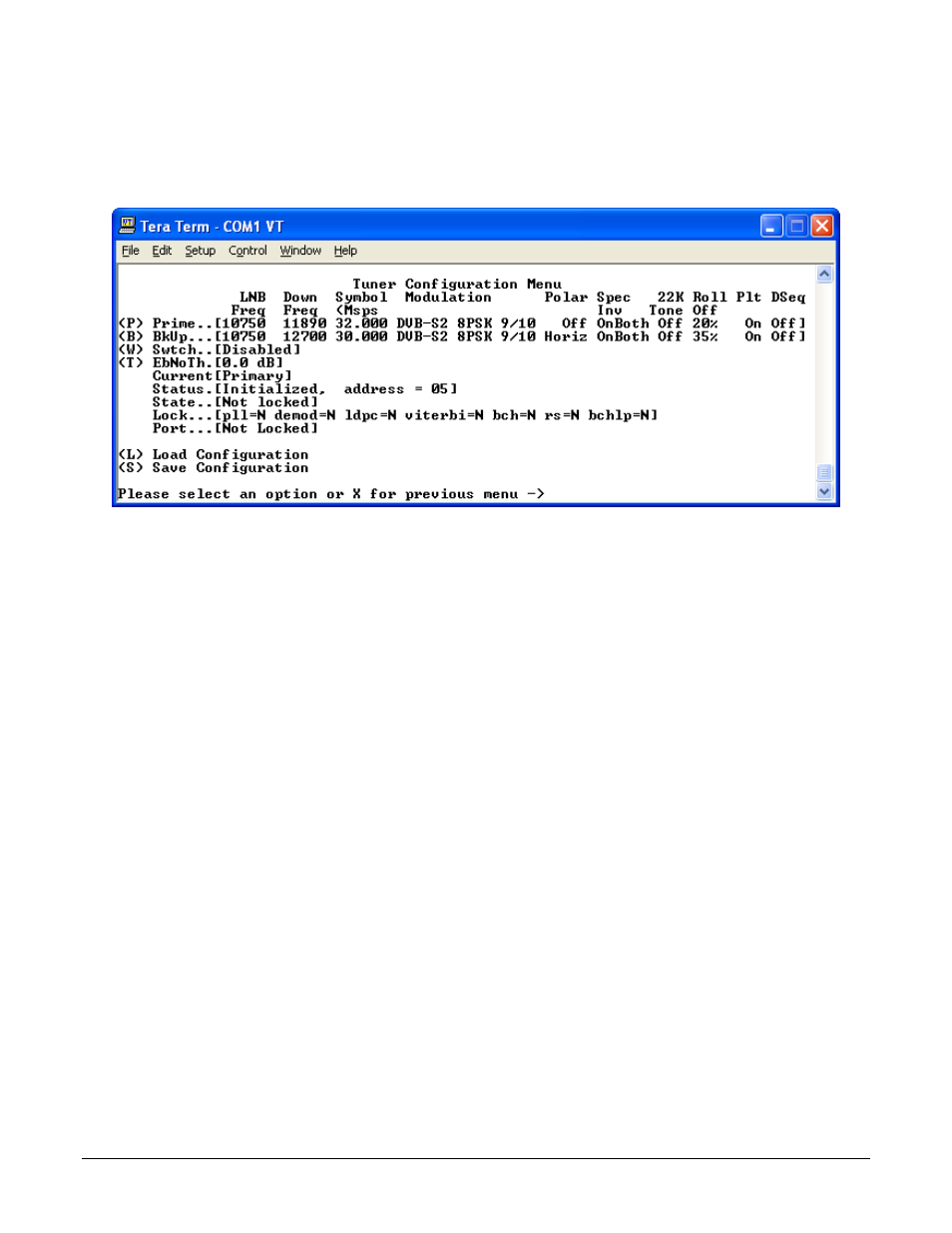1 tuner configuration menu – Comtech EF Data CMR-6000 Manual User Manual
Page 94

Digicast Media Router S2 Receiver CMR-6000
Revision 1
Device Management via User Interfaces
MN-CMR6000-IOM
4-64
4.4.11.1
Tuner Configuration Menu
Primary and Backup Tuner Configuration
The CMR-6000 can be configured to have a backup (secondary) configuration. The backup tuner
configuration allows the user to configure a backup configuration in the event the main carrier is taken
down. The CMR-6000 will only attempt to use the backup configuration in the event the primary carrier is
not available.
LNB Frequency
The frequency of the Local Oscillator (LO) that resides in the Low Noise Block (LNB) amplifier located at
the antenna. For Ku-Band operation, the LO is typically 10,750 MHz for Ku-Band operation North America
and other common frequencies are 9,750 MHz and 10,600 MHz. For C-Band operation, 5,150 MHz is a
common LO frequency. Please consult your LNB manufacturer for the LO in the LNB.
Downlink Frequency
The actual receive frequency being down linked from the satellite to the Low Noise Block (LNB)
amplifier located at the antenna. For Ku-Band operation, this frequency ranges from 10,700 MHz to
12,750 MHz. For C-Band operation, this frequency ranges from 3,400 MHz to 4,200 MHz.
The combination of the LO and the downlink frequency produce the L-Band frequency expected by the
CMR-6000. Some examples are as follows:
Example 1:
LO = 10,750 MHz
Ku-Band Receive Frequency = 11,895 MHz
L-Band Frequency = 11,895 MHz – 10,750 MHz
L-Band Frequency = 1,145 MHz
Example 2:
LO = 10,600 MHz
Ku-Band Receive Frequency = 12,010 MHz
L-Band Frequency = 12,010 MHz – 10,600 MHz
